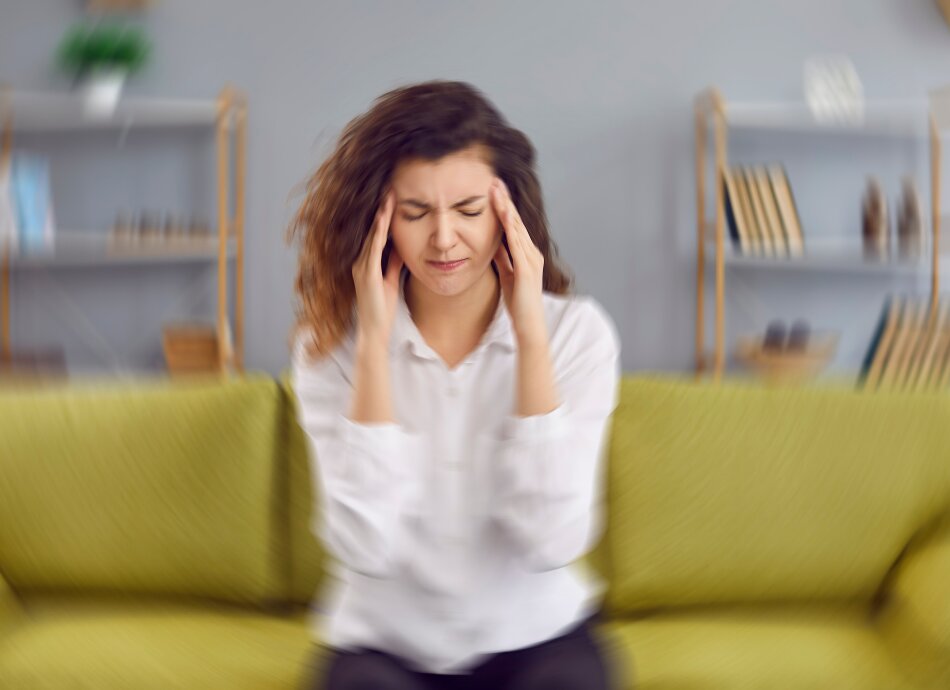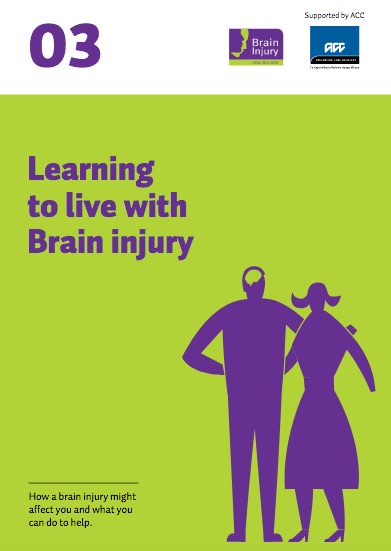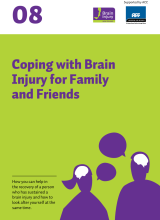Clinical guidelines
Head injury clinical guidelines(external link) Starship Hospital, NZ
Serious illness conversation guide(external link) Tō tātou Reo Advance Care Planning, NZ

If you're a frequent visitor to Healthify, why not share our site with a friend? Don't forget you can also browse Healthify without using your phone data.

A brain injury is damage caused to your brain tissue that occurs after birth and isn’t related to a congenital disorder (which is a condition you’re born with). It can be caused by a physical injury (trauma) or a medical problem, and can be mild, moderate or severe, depending on the type of injury.
If someone is unconscious or unable to move all or some of their limbs or is complaining of neck pain call 111 immediately. Don’t move the person (unless it’s dangerous to leave them where they are). Get immediate medical help if you or someone you are caring for:
If you or someone you care for has had a fall or may have a brain injury, see a healthcare provider as soon as possible. You can also call Healthline free on 0800 611 116 if you’re unsure what to do.
Note: Signs of brain injury may not appear for 24 to 48 hours due to a gradual increase in swelling or bruising around your brain.
A brain injury can be caused by:
Medical problems that can cause brain injury include:
Ongoing alcohol and drug abuse can also cause brain injury, as can poisoning with toxic substances such as pesticides, gases and solvents.
A traumatic brain injury (TBI) is caused when an impact (bump or blow) to your head or body causes your brain to shake inside your skull.
In Aotearoa New Zealand, the most common causes of TBI are:
A TBI can be mild, moderate or severe, depending on how long you’re unconscious for and the amount of memory loss you have. A mild TBI may or may not affect how your brain functions. A concussion is a mild TBI that does affect how your brain functions.
Find out more about traumatic brain injury (TBI) and concussion.
The most common cause of brain injury in older people is a fall. If you or someone you care for has experienced a fall, see a healthcare provider as soon as possible to check for the possibility of a brain injury. A brain injury can occur even if the fall is minor or not from a great height. Find out more about falls and how to prevent them.
The effects of brain injury are different for everyone. How you’re affected depends on which parts of your brain are affected and how seriously.
If you have a brain injury you may have symptoms such as:
If you have a moderate to severe brain injury, you’re likely to have some physical, cognitive (thinking) or behavioural disability. About 5% of TBIs in Aotearoa New Zealand are moderate to severe.
Some symptoms may appear right away, whereas others may not be seen for days or weeks after the trauma or onset of the medical condition causing the brain injury. Some symptoms may disappear after a few hours; some may continue for weeks or months.
See ‘What is the outlook if I have a brain injury?’ for some of the ongoing problems that may occur after a brain injury.
Your healthcare provider will ask you about your symptoms and do a neurological (nervous system) examination to check things such as your strength, balance, coordination, reflexes, ability to feel sensations like touch, pain and temperature, and thinking skills. Imaging tests, such as a CT scan, may also be needed to help find out the cause of your brain injury.
To assess the effect an injury or medical condition has had on your brain, and determine severity, your healthcare provider will use the Glasgow Coma Scale (GCS) to measure your physical, verbal and eye-opening responses. Read more about the Glasgow Coma Scale(external link).
Brain injuries can range from mild to severe according to the GCS, with mild being a GCS score of 14 to 15, moderate 9 to 13, and severe 8 or below.
Read more about diagnosis of concussion, which is classified as a mild traumatic brain injury.
Read more about diagnosis of a head injury, which includes injuries to your skull and scalp as well as traumatic brain injuries.
The management of a brain injury will depend on what’s caused the damage to your brain.
If your brain injury is caused by a medical condition, treatment will focus on that condition and will include rehabilitation from the effects of the brain damage that you experience.
If you have a traumatic brain injury, treatment will depend on the type and severity of the injury. Read more about treatment of traumatic brain injury, including concussion.
Recovery from brain injury takes time. As well as physical effects, you may experience impacts on your emotional and social wellbeing.
It’s important to take care of yourself.
Read about things you can do if you’ve had a traumatic brain injury or concussion.
You may find it useful to look at some concussion apps, stroke apps and falls prevention apps.
Your future progress after a brain injury will depend on the cause, extent and severity of the damage to your brain.
If you have a medical cause for your brain injury, your outlook will depend on the particular condition that you have.
Most people with a mild traumatic brain injury (TBI) recover at home without specific treatment. You may have mood or behaviour changes, but if you have a good understanding of your symptoms and can make some changes to your lifestyle while you recover you can make a full recovery. See our concussion page for things you can do to help you recover from a mild TBI.
If you have a moderate or severe TBI, you may require hospital admission and more intensive rehabilitation.
Because the brain is so complicated, it’s difficult to know exactly what the long-term outcome will be. Most people keep getting better slowly over time, but some people never recover to be exactly as they were before their brain injury.
Possible ongoing problems include:
The effects of a brain injury in older people can be serious and long term. These can include:
More than two-thirds of older adults with mild brain injury recover fully. Older people who are most at risk of poor recovery from a mild brain injury include those who:
A brain injury can have a dramatic impact on your family, job, social and community life.
When someone in your family has a brain injury, the whole whānau is affected.
This could involve the following:
Brain Injury New Zealand(external link) has a range of resources for living with brain injury. It represents regional Brain Injury Associations across Aotearoa New Zealand. They provide advocacy, education, and support to people affected by brain injury and their whānau. They organise support groups and can help with paperwork (eg, for ACC and WINZ), meetings and finding out about support systems.
Read about coping with brain injury for family and friends(external link).
Live stronger for longer – prevent falls and fractures(external link) An Aotearoa New Zealand website created by ACC and other partners that’s dedicated to helping older adults prevent falls and stay healthy.
Brain Injury New Zealand(external link) provides support and resources(external link) for those living with a brain injury or supporting someone who is.
First aid and emergency apps
Concussion apps
Stroke apps
Falls prevention apps
Learning to live with brain injury(external link) Brain Injury NZ te reo Māori(external link), Samoan(external link), Chinese(external link)
Coping with brain injury for family and friends(external link) Brain Injury NZ te reo Māori(external link), Samoan(external link), Chinese(external link)
Your rehabilitation(external link) Brain Injury NZ te reo Māori(external link), Samoan(external link), Chinese(external link)
Cognition: attention, concentration and memory(external link) Brain Injury NZ te reo Māori(external link), Samoan(external link), Chinese(external link)
Fatigue(external link) Brain Injury NZ te reo Māori(external link), Samoan(external link), Chinese(external link)
Living well with a brain tumour: patient guide(external link) Brain tumour support NZ
Brain tumour patient guides(external link) Brain Tumour Support NZ
What is brain injury?(external link) ACC, NZ te reo Māori,(external link) Samoan(external link), Chinese(external link)
Head injury clinical guidelines(external link) Starship Hospital, NZ
Serious illness conversation guide(external link) Tō tātou Reo Advance Care Planning, NZ

Brain Injury NZ English, te reo Māori, Samoan, Chinese

Coping with brain injury for family and friends
Brain Injury NZ English, te reo Māori, Samoan, Chinese
Credits: Healthify editorial team. Healthify is brought to you by Health Navigator Charitable Trust.
Reviewed by: Dr Stephen Kara, Sport and Exercise Physician, Queenstown
Last reviewed: